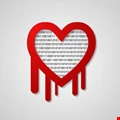Infosecurity News

UK & Ireland See 'Drastic Spike' in APT Attacks
The UK was one of the top ten countries in the world exposed to APT attacks in 2013, when measured by number of unique verticals targeted. With 12 unique verticals hit, the UK was tied for fourth with France and Thailand.

UK's National Crime Agency Appoints Cyber Crime Unit Director
The UK’s National Crime Agency (NCA) has appointed Jamie Saunders as the new director of its National Cyber Crime Unit (NCCU).

Infosecurity Europe 2014 > Security Can Be A Business Enabler
Organisations can use security to drive the business forward,an Infosecurity Europe keynote panel says.

Univ. of Central Florida Wins National Cyber Defense Competition
This past weekend, the University of Central Florida defeated nine other finalist teams to win the 2014 Raytheon National Collegiate Cyber Defense Competition (NCCDC), held in San Antonio, Texas. The largest collegiate cybersecurity competition in the country pitted the top 10 college and university teams against each other to keep a fictional business running while under constant cyber-attack.
HP Addresses Executive Security Gap with Metrics-driven Consulting Service
HP has announced a new consulting services practice, named HP Security Metrics Services, an initiative to provide data that can deepen executive-level security engagement by demonstrating how specific security risks directly imperil business objectives.

China's Google Equivalent, Sohu, Used For Massive DDoS
Sohu.com, China’s eighth-largest website and currently the 27th most-visited website in the world, was the unwitting originator of a massive distributed denial-of-service (DDoS) attack earlier in the month, which was carried out using traffic hijacking techniques. In all, the application-layer attack consisted of more than 20 million GET requests originating from the browsers of 22,000+ internet users – all turned into unwilling accomplices by the offender.

Google Swaps Out Crypto Ciphers in OpenSSL
Google has incorporated a new TLS cipher suite in Chrome that operates three times faster than AES-GCM on devices that don’t have AES hardware acceleration, including most Android phones, wearable devices such as Google Glass and older computers. This improves user experience, reducing latency and saving battery life by cutting down the amount of time spent encrypting and decrypting data – but it also gives security a boost.

Android Wallpaper Apps Hide Bitcoin Mining Malware
Is your smartphone running low on battery for seemingly no reason? Are things taking longer to render or load? Your gadget could be secretly mining bitcoins, thanks to a piece of mobile malware in Google Play that quietly uses an Android phone’s processing power, while hiding behind innocuous-seeming wallpaper apps.

GBGroup Acquires DecTech to Build Joint Identity and Fraud Portfolio
Identity intelligence specialist GBGroup (GBG) is acquiring DecTech Solutions, an Australian provider of fraud detection, risk management and customer on-boarding solutions, for $34.4 million. Together they plan to deliver a joint identity and fraud solution and drive international expansion.

NIST Releases Mobile App Vetting Tool
The consumerization of IT and the bring-your-own-device phenomenon in the enterprise has given rise to concerns over data security stemming from risky mobile applications and unsecured devices. The US National Institute of Standards and Technology (NIST) is attempting to address the concerns with the launch of an open-source web application for managing the mobile app vetting process, dubbed AppVet.

Fake Porn App is First SMS Trojan to Land on US Soil
SMS trojans are starting to appear in more and more countries, and for the first time, researchers have detected an active SMS trojan in the US.

Banking Trojans, Bitcoins and Espionage Dominate Recent Cyber-threats
Mobile banking trojans! Bitcoin wallet attacks! Cyber-espionage threats! It turns out that these three cyber-baddies are developing their attack trajectories exactly as predicted for 2014.
Samsung Galaxy S5 Fingerprint Hack Threatens Mobile Money
The Samsung Galaxy S5 has been on the market for only a matter of days, with its highly anticipated fingerprint scanner that will work with PayPal for mobile purchases. But there’s just one problem: German researchers have managed to fool the scanner with a latex fingerprint spoof.

Evolving DDoS Tactics Hijack Internet and Cause Attack Surge
Purveyors of distributed denial of service (DDoS) attacks are chewing up more bandwidth than ever before, and, according to Akamai Technologies’ Prolexic Q1 2014 Global DDoS Attack Report, are looking to turn the internet into one on-demand botnet thanks to evolving techniques that can deliver a bigger punch with fewer resources.

Samsung Joins FIDO Alliance, Creates FIDO-ready Galaxy S5
Samsung and PayPal have announced that they will be using the S3 Authentication Suite from Nok Nok Labs to leverage the emerging Fast IDentity Online (FIDO) standards for mobile payments.

Japan Awaits Its First Bitcoin ATM
Japan's first bitcoin ATM will soon be landing in that country, earmarked for unveiling in Suzuka City, home of Japan’s Grand Prix event. From there, it will go on to a permanent location, to be determined.

Stealer Trojan Becomes Mobile Malware Leader
It’s no secret that mobile malware is growing exponentially, with Android bugs leading the way, but one stands out above the rest: The Trojan-SMS.AndroidOS.Stealer.a - better known as 'Stealer' - has become a leader in terms of the number of attempted infections on user devices monitored by Kaspersky Lab.

CloudFlare Launches Bug-Hunting Program
CloudFlare has launched a vulnerability disclosure program, facilitated by HackerOne’s bug reporting platform. The vendor is inviting the security community to report any flaws members may have discovered, track CloudFlare’s progress in addressing it, and receive confirmation when it has been fixed.

Siemens among Industrial Control Systems Vulnerable to Heartbleed Flaw
The Heartbleed flaw in OpenSSL is continuing to leave gaping holes in the security perimeter for organizations worldwide, including within industrial control systems. It turns out that certain Siemens and Innominate ISC products are vulnerable to this latest threat.

Disintegration of Trust in Cyberspace Must Drive New Security Attitudes
The revelations in 2013 that governments and their agencies have been spying on citizens in the name of national security have seriously undermined trust when it comes to operating in cyberspace, according to the Information Security Forum (ISF).



